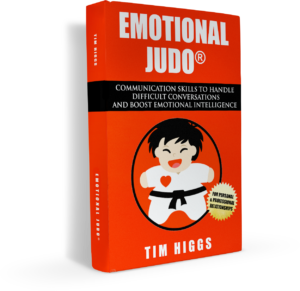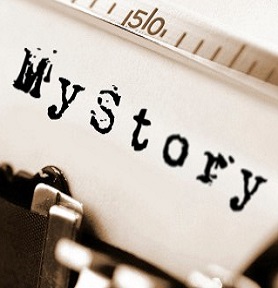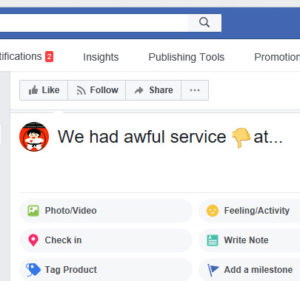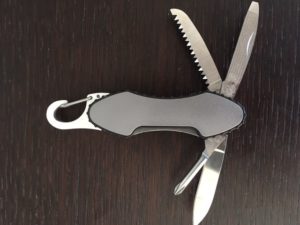| Communication Skills to manage conflict, handle difficult conversations and build emotional intelligence
A blog for leaders and others who want to gain confidence, self control and influence in difficult conversations when stakes are high.
conflict, resolution, resolve, difficult people, communication skills, emotional intelligence, EQ, training, coaching, courses, assertive, assertiveness, negative emotions
16291
page-template-default,page,page-id-16291,ajax_fade,page_not_loaded,,qode-theme-ver-10.1.1,wpb-js-composer js-comp-ver-6.2.0,vc_responsive

Blog
If you would like to be notified each time we post a blog article please register for our fornightly posts.
Emotional Judo General / Improve skills / Significance v Insignificance / sympathy vs empathyWe’ve been talking since we were about 18 months old but how effective is our communication? If you or your organisation are participating in these seven cancerous traits, what is the cost?
The Shotgun
We could put any bad listening habit on this list: assuming, jumping to conclusions, mind excursions etc.
The shot gun is just one example of poor listening skills.
Not listening properly leads to miscommunication and error, a breakdown of trust and relationships, and potential conflict. Are any of those good for organizational outcomes?
The shot gun is where a person who is meant to be the receiver of information prizes their information over another’s. As a result they do not listen to the content of the other, they are simply searching for a gap in the conversation so they can fire off their loaded shotgun with their views to take control of the conversation.
Even if you disagree with the other party, there is a better way to enter the conversation.
The shotgun fosters animosity and a lack of willingness to collaborate.
Fake Facts and Opinions
With memes and social media re-posts these days, no one is checking the veracity of ideas put out into the public. This predates the current day but it is more commonplace now. The current US president is good at this one. Newspapers have slashed their editorial staff because they are competing with the Internet. Hence, not even newspapers are properly checking their facts. Repeated ideas swim around in cyberspace become truth.
An example of this that pre-dates the internet are the stats on communication that only 7% of communication is from words, 38% is tone and 58% is body language. Even Albert Mehrabian, who conducted the 1967 research that gave rise to those numbers, says he has been misquoted ever since.
But even worse than fake facts are opinions. Unless you are a renowned oracle or your opinion is based on relevant empirical evidence, then your opinion is simply that.
Opinions are valid provided they are substantiated. At the same time, we need to be aware that empirical data is sometimes based in a context. If we only run from historical data without questioning context and sticking to vision, we will never go forward.
Getting a balance of this in decision making is important.
Breaching Confidentiality
Trust is one of the most important elements of good communication.
It goes without saying that breaching another person’s confidence will be an enormous killer of trust in your relationship moving forward, yet people still do it. If their faith in confiding in you is disregarded, they will be less trusting of you next time it comes to sharing important information. Hence you may be stemming the communication flow.
Blame avoidance and its cousin
The cousin of blame avoidance is blame attribution. If everyone is looking for somebody to blame, then not too many people are taking responsibility and accountability.
If this goes on within workplaces or families, what ends up happening is a blame avoidance culture. No one wants to take ownership for fear they will get their head chopped off.
The cousins feed into each other. People purposefully create an out-clause in actuality or in their own mind at the start of a project. As a result, greater project failure is a likely outcome.
Blame avoidance and attribution are huge cancers in organizations and families.
Interrupting or finishing
This could probably be labelled a poor listening habit like the shotgun.
Interrupting others, or finishing what they are saying because we assume we are understand or know what they are trying to communicate, is a patronizing and potentially hazardous process. It may speed up proceedings, but both these poor habits stifle the potential of useful contributions in the future. That may result in helpful pieces of information never emerging.
If you see your ability to communicate as superior and jump in over the top of others, remember communication is a two-way street that involves reception as much as broadcast.
Not checking out/ lack empathy
It is so easy for miscommunication to happen.
As has been said, we don’t listen properly, we assume we know what others are saying, we prize our own opinions over others, and we enter situations with predetermined notions that our way is ‘right’. If you look at the communication filters that each of us run our incoming information through, it is a wonder we can understand each other’s intended meanings at all.
Lacking empathy will get in the way of understanding others. That doesn’t mean you have to agree with them but acknowledge your understanding with more that “I get where you are coming from,” or “I understand.”
Checking out means we take steps to assure that the meaning we have taken away is the intended one. Not checking out assumes we understand what the other person has said and can lead to errors in communication and costly mistakes for organisations.
Simple stuff, I know, but because it is so simple, laziness and pride often get in the way of this occurring.
Significance battles
Significance battles occur when egos clash.
It is probably one of the most common communication problems in any setting: workplace, personal, social.
Everybody wants to feel a level of significance in relationship with others; it is one of the six fundamental human needs according to Human Needs Psychology. Respecting another’s views generally flows into mutual respect.
When a significance battle occurs, both parties are looking to win over the other, rather than trying to find a true win-win. Inside an organization this battle wastes time, leads to passive aggressive behavior and can derail or limit outcomes.
But difficult conversations need to be had in all relationships so understanding how to negotiate significance battles is important.
Tim Higgs is a Narrative Psychologist and author of the International Best-selling book Emotional Judo®: Communication Skills to Handle Difficult Conversations and Boost Emotional Intelligence. Available here. [...]
Read more...
Business / Emotional Judo Mats / Improve skills / Leadership / Significance v Insignificance‘If’ by Rudyard Kipling, is one of the most inspiring poems but almost impossible to live up to completely. It touches on many qualities desired in business and community leaders: vision, humility, courage, ethics, time-management and the reason for this post – emotional intelligence.
My grandmother introduced the poem to me when I was nine. I received an autograph book for Christmas (they were a trend back then) and asked her to sign it. She wrote:
If you can fill the unforgiving minute
With sixty seconds’ worth of distance run,
Yours is the Earth and everything that’s in it,
And—which is more—you’ll be a Man, my son!
Later I realised it was just one verse of many. I have since grown to love two lines that typify emotional intelligence and are important of objectives of my book, Emotional Judo®: Communication Skills to Handle Difficult Conversations and Boost Emotional Intelligence.
If you can keep your head when all about you
Are losing theirs and blaming it on you,
and,
If you can talk with crowds and keep your virtue,
Or walk with Kings—nor lose the common touch,
Being able to speak up in times of conflict and disagreement without being overcome by anxiety or losing your cool is a skill that can be learned by having the right structure and knowledge.
Further, being able to keep your humility and not come across as overbearing or arrogant, as you move up the ranks. Or not be threatened by the seniority of others, so you can contribute your valuable information, is a virtue for you and your workplace…or family and social group for that matter. The significance scaffold helps you master the right ingredients to get people on board, up, down or across.
Emotional Judo®: Communication Skills to Handle Difficult Conversations and Boost Emotional Intelligence, was recently endorsed in business magazine Inc.com as one of the top twelve books on Emotional Intelligence to read before you turn 50. It available on Amazon . [...]
Read more...
Business / Emotional Judo General / Improve skillsHere are a few tips to improve your recall and be remembered by others as well.
1. Three is the magic number
2. Chunk
3. Use Mnemonics
If you lost your phone and had to call someone important in an emergency, would you remember their number? Do you find information hard to recall at crucial times?
The key to being remembered is to understand how people digest information effectively. It helps others remember information you impart to them, and if you use the same principles for yourself, it will help you remember better as well.
For the past twelve years I have taught a course called Think on Your Feet®. It helps you be concise, brief, and memorable when you speak, by revealing ten structures behind good communication. It is an excellent course, so when I wrote my own book, Emotional Judo®: Communication Skills to Handle Difficult Conversations and Boost Emotional Intelligence, I incorporated some of the concepts. It’s been a best seller on Amazon for four months, so hopefully I did something right. (If you want info on either course, contact me here.)
People often forget the diplomatic way to say things when they get anxious or irritated in a difficult conversation. So, any training they have in this area needs to be memorable and on call!
Three is the magic number when speaking to another. One point may not be enough to get an argument over the line. Two points may be oppositional. Three points is enough information to influence and not too much that it will be forgotten.
When posting blogs or writing emails you may be able to stretch it to five because the reader can remember more when the information is written.
But what if you have eight steps or fifteen, how does that fit?
This was an issue I faced in Emotional Judo® with an eight-step formula for bringing up potentially volatile issues with people. It’s called U WIN/I WIN. I couldn’t just bury three steps; it wouldn’t work for the user or receiver!
You can probably guess how I solved it. Remember how you remembered eight-digit phone numbers before mobile phones?
Chunk them! So, eight steps becomes two parcels of four. Fifteen would be 3 points x 5.
To be remembered or remember for yourself break down your info into larger topics with sub topics under them.
And for the final icing on the cake. To really remember at times of importance or stress, create mnemonics. (Silent first m.)
A mnemonic is a structure that helps you remember information. It could be an acronym, a rhyme, an associated fact or visual (good for remembering names). There are many kinds of mnemonics.
So, U WIN/ I WIN is chunked as well as being a mnemonic. And even the mnemonic is special because apart from each letter of the acronym prompting each step, the idea held in the acronym itself, you win first then I can win, helps the user remember the overarching premise.
So if you can, use three, chunk, and use mnemonics. And a bit of repetition doesn’t go astray either…haha.
Next blog. I’ll share the eight steps of U WIN/ I WIN.
If you want info on either Think on Your Feet® or Emotional Judo®: Communication Skills to Handle Difficult Conversations and Boost Emotional Intelligence, contact me here.)
[...]
Read more...
Emotional Judo General / Teams / TrustI didn’t design this, it’s a happy accident. This applies to any team that wishes to function better, and that includes families.
When I read the recent LinkedIn post, where Tim Baker put forward his eight characteristics of high-performing teams, I thought hold on! Six of these characteristics can be found in my best-selling book Emotional Judo®: Communication Skills to Handle Difficult Conversations and Boost Emotional Intelligence. (Grab it on Amazon)
To me, numbers one and eight are ethics fostered by the leader or founder of the team. The other six are skill-sets/behaviours. While it’s nice to know what the characteristics are, it’s even better to know how to develop them.
In my experience of working with tens of thousands of people on communication and leadership over the last 16 years, many people struggle with some of these skills/behaviours.
Here are Tim Baker’s eight characteristics with some of my notes on how you can develop the skills. The take-away is in bold at the end of each one.
Sense of Purpose – Ethic and vision.
Open Communication – Certainly there is more to open communication than having a difficult conversation. But most people find difficult conversations tough because of the emotion that usually exists. Being able to openly disagree with the leader and other team members and come to satisfactory resolutions is a very important component of open communication. It ultimately has people feeling their views are respected and they are valued. Having communication structures to support this process and giving people the confidence to have open communication without recrimination is what Emotional Judo® seeks to achieve. Use structures to aid your open communication.
Trust and Mutual Respect – Trust is a feeling as well as a logical conclusion drawn from various variables. It is the cornerstone of open communication. We also need to be able trust that people will fulfil what they have committed to. The five ingredients A, B, C, D, E of trust are outlined in the book:
Authenticity
Behaviour
Consistency
Dependability
Ethics
Respect is a “behaviour” and included in this ingredient. Absence of respect, generally prompts defensiveness or apathy and that is a disaster for high performing teams. A stepped process on how to get more trust is included in Emotional Judo®. Examine your existing relationships and see where they can improve within the five ingredients.
Shared Leadership – this characteristic is not discussed as “leadership” in Emotional Judo®, however, most of the ten communication tools seek win/win outcomes and as Tim Baker points out, this is about being consultative. The significance scaffold is the crucial tool to use in these circumstances. Your ability to step down from significance and not feel at threat when someone you lead takes it, is an important leadership skill. There is an online assessment accessible from the book. Don’t monopolize significance; pass it around.
Effective Working Procedures – in Emotional Judo® Rules, I mention that, like regular martial arts, if you do not have established rules and norms, people will generally “make stuff up” to advantage themselves. It is important to have explicit norms and procedures.
Building on Differences – differences are an important component that make teams more robust. Embracing and building on differences is important. Differences can also bring up frustration and intolerance for some people. Having tools with structures to help work through differences is vital for team performance. That’s what Emotional Judo® does. Use structures to work through difference and create better outcomes.
Flexibility and Adaptability – being able to work with others to find best outcomes and allowing yourself to relinquish “being right” and fixed in your views for the sake of best outcomes is important in a high performing team. Again, Emotional Judo® provides structures to do this. Entertain that there may be better ways than “your way” and use structure to invite discussion.
Continuous Learning – Ethic
If you haven’t done so already, grab Emotional Judo®: Communication Skills to Handle Difficult Conversations and Boost Emotional Intelligence on Amazon. You can read it on any device as an eBook and it’s available as a paperback.
[...]
Read more...
UncategorizedDespite the title of my Amazon Best-Selling book, Emotional Judo®: Communication Skills to Handle Difficult Conversations and Boost Emotional Intelligence, there is not a lot written in there about Emotional Intelligence.
Isn’t that misleading people? Is it a scam?
Absolutely not; it’s practical.
Judo in Japanese means “the gentle way”. Its founder, Kano Jigoro sought a way to maximise effectiveness through minimum effort; a smaller opponent with good technique could then beat a larger one.
Working on that principle, I developed Emotional Judo®. It provides you with 10 tools to help you manage difficult conversations, to gain effective outcomes with good technique and less effort.
You don’t need to know how cells respire and muscle is built, for you to get fitter and stronger. You can simply do exercises and lift weights with the right form and repetition and you will become fitter and stronger.
If you master the Emotional Judo® tools, you will become more emotionally intelligent. It’s that simple.
But, it may be useful for you to know…
Emotional Intelligence is generally thought to have four parts:
Understanding our own emotions
Understanding others’ emotions
Managing our own emotions
Doing things to emotionally impact others positively
Just like different exercises will work different parts of your body. Different communication and emotion tools and exercises will build the various parts that make up emotional intelligence.
And like physical exercise, the more you do it the easier it gets.
Understanding how you position yourself in relationships through the metaphor of the Emotional Judo® Mats, will help you develop in all four of emotional intelligence.
Building your capacity to empathize will help you not only understand others’ emotions but connect to them to positively impact them.
And of course, to be able to empathize, you need to understand emotion in general – your own included.
These are just two of the ten Emotional Judo® tools.
Check out the book on Amazon. You don’t need a kindle; you can read from any device. [...]
Read more...
UncategorizedThis blog applies as much to those who have bought my best-selling book Emotional Judo®, as to those who are still to read it. It is as applicable to personal relationships as much as it is to the workplace. And in fact, this is an important concept for organisations undergoing change.
I was recently coaching a mid-level manager in a tech organisation. We were talking about his career prospects, his eight-year tenure with his current organisation, which he loves, and what might need to happen for him to get to the career role he covets.
This prompted him to talk about his CV and he suggested he needed to dust off his old CV and add what he had done in the last eight years.
I have had this conversation with many coachees and training participants over the years because it occurred to me when I was “brushing up” my own CV a long time ago, that I was not the same person I was when I wrote the original. Simply adding my most recent experience was not reflective of who I had become as a result of the experience.
How does that analogy relate to my book?
Emotional Judo®: Communication Skills to Handle Difficult Conversations and Boost Emotional Intelligence, uses the metaphor of real judo, which means the “gentle way” in Japanese.
Real judo was developed to achieve maximum efficiency with minimum effort; a smaller judoka (judo participant) with the right skills uses leverage to beat a bigger opponent.
Emotional Judo® provides ten “invisible” structures to help you achieve maximum efficiency with minimum effort. In other words, you achieve better outcomes when dealing with difficult people and delicate or important conversations. Having the right skills can help you say what you need to say even in the face of conflict. The right skills can help you keep your cool and speak with tact and diplomacy. Or they can help you manage people who may present as difficult.
A real judoka who learns the skills to be able to defend him/herself in any situation will grow in confidence, composure, and capacity. And that’s what can happen for you as you start to master the skills of Emotional Judo®.
It is not simply a group of skills; it is transformative.
But, sometimes we need to be reminded that the story that we hold of ourselves has changed. Just like the CV example, we are not simply the same people with a few more skills, we have become different people.
It is also important for organisations to think of this idea when they are implementing change, especially if they have long term employees. If the organisation is not standing still – if it is growing and evolving – then the staff are not even working for the same company they started with, let alone the changes they will have made within themselves as individuals.
As a narrative psychologist, working with individuals or groups, I have found this one of the most important concepts of lasting change. If the original story has not been transformed, people can often find a path back there at the first hint of a challenge.
If you have read the book, take a moment to think who you have become as a result. Or perhaps even create a whole new CV.
If you haven’t read it and would like to transform your communication effectiveness, the e version is only AU $3.99 on Amazon and you can read it on any device. Emotional Judo®: Communication Skills to Handle Difficult Conversations and Boost Emotional Intelligence. [...]
Read more...
Business / Emotional Judo General / Improve skillsThis weekend we are celebrating the Queen’s birthday in Australia. For those of you in the US don’t tune out; you now have some connection to the royal family since Meghan Markle’s recent marriage to Prince Harry.
Besides this post is for anyone who is introverted, fears public speaking or fears confrontations.
The Queen’s birthday paused me to think of how it must be, if you are born a royal and you are thrust into the spotlight of public speaking. Much like those who start progressing in their careers and have to present or have more difficult conversations with people; it comes with the territory.
What happens if you don’t like it? Actors, performers, and politicians seek the public spotlight, but royals inherit this role and sometimes you get the accidental manager or presenter.
Of course, the movie the King’s Speech was all about that.
King George VI never expected to be on the throne. It was only because of the abdication of his brother that he became king. He hated speaking publicly because he had a stammer.
Wow! Despite his obvious impediment, his fears, and aversions, he was still able to make speeches that were so important to his people during some of the darkest hours of the Second World War. He was able to connect to a greater purpose that helped him break through but, more importantly he received coaching from Australian, Lionel Logue and found tricks to help him make some very significant speeches.
Closer to our time, Prince Charles, the current heir apparent to the throne, also lacked confidence when younger and would get a bit ‘freaked out’ at certain times he was in public.
Anyone who has done public speaking or presented in public, will know that when we lack confidence and feel anxiety there is a natural tendency to want to cover ourselves up. People fold their arms, go into the ‘toilet pose,’ or use shields such as tables, lecterns, or their notes.
To help Prince Charles with his discomfort, he was coached to use a disguised arm barrier. Instead of looking like he was being defensive when he got anxious, he was taught to grab the opposing cufflink in his shirt sleeve and look like he was adjusting it. To the public he looked like he was making a clothing adjustment but to him, he got the relief of being able to hide behind his crossed arms and feel protected when he felt exposed and anxious.
George and Charles’ experiences show how there are skills, tricks and ways to getting beyond our emotional obstacles. Often because we have really strong negative reactions to certain events (like public speaking), we run a mile. We assume people are just naturally good or bad at certain skills, rather than finding the underlying principles that support good practice in those skills.
That is what Emotional Judo®: Communication Skills to Handle Difficult Conversations and Boost Emotional Intelligence is all about. It’s not about public speaking tricks; it’s about ten invisible structures that support you in difficult conversations, an area that brings up anxiety and a lack of confidence for many. Grab it at Amazon today.
Oh and one of the ten structures, EASE can help you when you are presenting, as well as when you have a tense conversation. [...]
Read more...
Business / Emotional Judo General / LeadershipThis blog is written mainly for Australian readers but for those of you in other countries, it may give you insight into the Aussie psyche.
We can have a tendency in Australia to say she’ll be right mate.
…that is, until it isn’t right, and something breaks.
Historically, Australian men have been very good at doing this with their health and relationships and Aussie women can be pretty stoic too. We generally soldier on.
But what about business? How is the health of your business in terms of staff engagement?
How many people in your business are actively disengaged due to poor feedback and communication skills from managers? 37% according to a 2012 Gallup poll on the subject.
Is this also affecting customer engagement?
What could it do for your business if these people were re-engaged?… if your managers could get these skills for FREE? (Find out how below)
***
Australia has only 7.5% of the population of the United States.
If I take that ratio and apply it to the sales of my book Emotional Judo®: Communication Skills to Handle Difficult Conversations and Boost Emotional Intelligence, then my sales in Australia should be proportionate. But despite getting Best-Seller status here in Australia on Amazon, sales are disproportionate to the ratio. They have been and are about half that.
On top of that I have been posting on LinkedIn and Facebook (boosting posts) in Australia. That should mean more interest but alas my rankings have recently slid here in Oz, whereas the book still has its Best-Seller status in the US.
Is it a case of she’ll be right mate, or do we just not have a need for difficult conversation skills and emotional intelligence in Australia?
For the past sixteen years, most Australian managers I have trained, have nominated some of the skills in this book as being their most significant learnings and highly needed resources. Prior to that, when I was in private practice, many of these skills would help people save their personal and family relationships.
Of course, it simply could be that people who have a need are unaware, or they are unaware that they don’t need a kindle to read an eBook; they can be read on any device. (There is also a physical option).
What if your managers knew better ways to feed back to keep staff engaged but were also prepared for the seven sneaky tricks people do when involved in important, high stakes conversations?
Even though it doesn’t help my sales on Amazon, I still stand behind Emotional Judo® as a resource, and I want to give you two mini-books for FREE.
Get the FREE book Emotional Judo®: 7 Sneaky Tricks of Difficult Conversations and the link to its FREE companion Emotional Judo®: EASE for Difficult Conversations. HERE
If you like the info perhaps you might buy the whole book. Happy reading! [...]
Read more...
Uncategorized In this age of social media, it is so important how you attend to customers and handle their issues. For all you know, I could be a mystery shopper rating you on your prowess. At the very least, I could simply take my business elsewhere, but more importantly, you don’t know how connected I am on Facebook, Twitter or LinkedIn or what I do, or whom I speak to, for a living.
I stayed at a motel in a large NSW Country town on Sunday night because I was attending a funeral on Monday. The region can get rather cold, and being a few days away from winter, it was quite chilly.
I shared a room with my octogenarian mother and septuagenarian uncle who had been briefed on the room by the owner. I had flown in from another state and arrived separately.
The motel was clean and adequate but all night we were kept awake by a noise that went off every five minutes; a deep, sustained sound, similar to a pool pump. I tried to wake the owner at 1 am to see if we could switch rooms because the three of us in the room could not sleep.
The next morning, after three and a half hours of broken sleep, I spoke to the owner about the issue.
Given that I teach communication skills, I understand the importance of the way you broach difficult conversations. I used some Emotional Judo® tools to get the proprietor on side and then told him of our experience. Instantly, on learning of the issue, he bristled and denied there was a problem; it must have been outside the hotel. He did not apologise for our inconvenience or show empathy at our lack of sleep. At this point, in my old ways of dealing with such situations, I would have been peeved at that and reacted in a way that had us doing emotional karate and butting heads. Instead I acknowledged it could have been outside, it did not seem likely, and I invited him back to the room to listen.
It turns out that it was the central heating making the noise. He demonstrated to me in a patronising way, as if to say, all you had to do is turn this switch off. He washed his hands of responsibility by saying that he had shown this switch to my mother and uncle. I again did Emotional Judo® to acknowledge that he may have shown them the switch and also that it was a simple fix. I also asked whether he had alerted them to the noise and whether he thought it was acceptable to have such noisy central heating in a town renowned for its low temperatures. He then countered with one of the seven sneaky tricks in difficult conversations – a shift of context.
Sometimes, Emotional Judo® tactics will have people move quickly to collaboration. Other times people are stubborn to move from their karate tactics and it takes longer.
At this point I had to choose, whether to continue with my Emotional Judo® skills for some resolution or spend my time on something more important. As I was tired, and we had to get to the funeral, I decided to drop the issue.
It is at this time most proprietors would think the matter is over. They do not think of the longer-term implications of their behaviour and wonder why they have a decrease in patronage. In this country town, there is competition and this business can do with help.
It used to be a saying that if you have a positive experience you will tell two people, and if you have a negative experience you will tell ten. These days you may tell thousands on social media, by virtue of re-posting.
I am not doing that, nor am I mentioning the name of the town or motel in this blog. My uncle, on the other hand, will give honest, poor feedback about the noise and lack of care in dealing with it, on the booking site. This will lower their star rating, which may dissuade future custom.
How are your staff dealing with difficult conversations? Are they cementing the customers and clients to the organisation or potentially alienating them?
Are your managers doing the same with their staff?
Prevention is better than cure.
Emotional Judo®: Communication Skills to Handle Difficult Conversations and Boost Emotional Intelligence is available on Amazon. [...]
Read more...
Emotional Judo General / Improve skillsI only like black jelly beans, and I’ll pass on other colours when offered.
There is an idea in business training like this. Focus on your strengths and mitigate your weaknesses. Do the things that you love and are good at, and find people with strengths in other areas. After all, that’s what teams are for; the sum of the parts produces more than the whole.
It’s generally good advice except if you want mastery over whatever you are training in or you are training in leadership.
You may have a vision. You might be very astute at your technical skills. But, unless you can build relationships, influence people to get on board with you, handle your own emotions, and handle the inevitable conflict that happens when groups of people assemble, you are going to struggle as a leader.
Over the last 16 years of training Emotional Judo® tools and other skills in communication and leadership workshops, some people will devour the whole pack of jelly beans. They know they need to master the skills, despite the discomfort. I’ve also found that some participants simply want the black jelly beans. They say, “this is how I am”, or “I’m not good at that,” and only go for things within their comfort zone.
We can even do this as general staff or in life in general, and these skills of being able to have difficult conversations are important for everyone.
This is where brussels sprouts come into the picture.
When I was growing up, I hated brussels sprouts; they were the antithesis of black jelly beans. But, we had to eat them, or we got no dessert. I would mix them with mashed potato, combine them with my lamb-chops, try and wash them down with lemonade. It didn’t matter how I tried to disguise them, I would start gagging when they entered my system.
It was only when I got married that I realised it wasn’t the brussels sprouts that were the problem, it was the way my mother cooked them. She would boil them within a millimetre of their nutritional value.
When I steamed them and added butter, not only were they tasty to me, my own kids would eat them, no worries.
Emotional Judo®: Communications Skills to Handle Difficult Conversations and Boost Emotional Intelligence “serves up” ten tools to manage your own and others’ emotions, so you can have successful high stakes conversations. They are those skills you know you need to eat, but despite that, you go looking for black jelly beans.
If conflict and difficult conversations are things you avoid, or you find it difficult to manage your own emotional reactions when stakes are high, (or you are responsible for people development in your organisation), perhaps you need to find a “palatable” solution.
By having structure and memorable tools to use, you will be more confident and in control.
Send me a message to start a conversation. [...]
Read more...
Emotional Judo General / Improve skills / TrustYour fastest route to get people off side when you are trying to convince them on a particular viewpoint is to say the words, “trust me”.
If you are in sales, customer service, or a leader in a business, stop it right now. It is so counterproductive to your cause.
Why should I trust you?
Unless I know you well or know your area of expertise, I am less likely to take on face value what you have to say.
You may think that you are merely saving time, but unless you have always looked after my needs, telling me to trust you will only raise a spectre of concern. And this feeling of discomfort will be antagonistic to your objective.
This is further exacerbated if I am a leader and/or a person who needs detail or proof. Leaders usually have their own context and agenda and don’t like being told. And those who need to read the fine print or need proof, have a sense of risk mitigation, that will not be appeased by a trite remark.
It is a lazy way of putting forward information, probably learned from our parents who expected that their children would implicitly believe them. It patronises the other party by saying I know better than you do, and says don’t even think to question me because I know what I’m talking about.
In Emotional Judo®: Communication Skills to Handle Difficult Conversations and Boost Emotional Intelligence, I outline the five elements of trust, the A, B, C, D, E.
Authenticity
Behaviour
Consistency
Dependability
Ethics
Context will dictate which areas are important in a person’s judgement of trust at any given time. So, your Consistency and Dependability may allow you to get away with saying “trust me.” But, it is the Behaviour element I really want to dissect here. What makes up trustworthy behaviour?
Respect or at least no disrespect
Acting fairly
Concern for the other rather than for only self
– Approachable
– Benevolent
– Caring
– Considerate
– Empathetic
– Good listener
– Helpful/Supportive
Delivering on promises
Taking responsibility
Astute/Decisive
Competence/Credibility
If you do these things, I am more likely to trust you. BUT, you might say, all those things take time.
That is true. As a leader you must beware! You are being scrutinised by those you lead, all the time. It’s an old analogy, but the more deposits you put in the trust bank, the greater your ability to make a withdrawal when necessary.
But when speed counts, I don’t know you very well, or you know I am likely to have resistance, the quickest way to gain my trust is via empathy and a demonstration of credibility.
Show your care and empathy to consider why I might have resistance to what you are saying. Validate that by empathising with me. Then demonstrate why I should listen to you without sounding like you are boasting. Build your credibility based on your track-record, experience, or knowledge to name just a few.
So instead of,
“Trust me, I’ve been there,”
“Trust me, you simply need to do…xyz,”
“Trust me, I know what I’m talking about,”
“You just have to trust me on this.”
Try,
“I appreciate that you are sceptical at the moment. I was too before I found out xyz.”
“I can sense that you are quite uneasy about this. Many people I have worked with have had those initial feelings, it was only once they did…”
“You mentioned xyz was important to you. Out of all the products I have tested this one is most likely to meet your needs because…”
“I respect that you have some doubts because of what you have experienced before. I know I have only been in this position for a short time; one of the reasons they gave me the role was because I achieved abc in my previous organisation. The way I did that was through xyz. So, I would like to look at how we can collaborate to get the same results.”
Patronise me with “trust me”, and I will feel you are disrespectful and self-serving. Empathise with me and show me why I should listen, and I will be more likely to consider your view or proposition. [...]
Read more...
Emotional Judo General / Improve skills / LeadershipIn a recent blog on Empathy vs Sympathy, I mentioned that I sometimes remark in jest while training Emotional Judo® skills, that when growing up, boys/men are usually taught not to go anywhere near their feelings at all. Women are often taught to sympathise.
But even though to “man up” and “not be sissy”, infers that to acknowledge feelings is somehow a womanly trait, woman in business can also fall into the “man up” trap.
Logic is king in western business and feelings are often treated with contempt (which ironically, is a feeling). But, male or female, if your way to manage feelings is to harden your heart and not connect to your feelings, you will experience two big issues.
These two issues may seem obvious to those on the receiving end.
The first issue is that when you switch off your feelings to yourself, you usually switch off your ability to properly read and understand others’ feelings. This means you will often miscommunicate (both in the way you come across and through misinterpreting information coming to you) and potentially cause conflict. You will be less effective at influencing and cause issues that may lose good staff.
I had a CEO of a small family-owned manufacturing organisation, in a training on feedback. He was very removed from his feelings. He disclosed he had had multiple instances where he had delivered feedback and thought it went well. He then found that the recipients of the feedback (different people at different times) were either reduced to tears or had lodged a complaint against him. He was bewildered as to what he had done. His wife, who was a co-director, was constantly band-aiding his poor communication skills and getting people to reverse their decision to leave.
Teaching him empathy skills was no small feat. But, we did get there in the end.
The second major issue is that you become disliked; people think you are something I can’t print. You might think that is no big deal like Rob did, but think again.
Rob is a project manager and a case study from my internationally best-selling book Emotional Judo®: Communication Skills to Handle Difficult Conversations and Boost Emotional Intelligence. He declared when I was coaching him, “I don’t care if people like me or not, I have a job to get done.”
In his book Influence: The Psychology of Persuasion, Robert Cialdini puts forward six ways to persuade. One of those is likability. Likeability is not necessarily always going to get you across the line by itself. (Sometimes it will if you are a Bill Clinton type.) But it is more likely to be the underlying foundation that will help you use Cialdini’s other five persuasion techniques.
How do you solve this?
Learn how to empathise! Some people think they are empathising and have no idea they are actually alienating.
This FREE eBook EASE for Difficult Relationships will show you how. [...]
Read more...
Improve skills / sympathy vs empathyI sometimes remark when training people on the tools from my internationally best-selling book Emotional Judo®: Communication Skills to Handle Difficult Conversations and Boost Emotional Intelligence, that women are often taught to sympathise and men are usually taught not to go anywhere near their feelings at all. While this is meant to be a joke, many a true word is said in jest.
More about those who “man up” and turn away from feelings and the two huge problems it causes, in the next blog. For now, let’s look at why it is a problem to sympathise instead of empathise, especially in the workplace.
If you read my recent LinkedIn article, “The Swiss Army Knife of Difficult Conversation Tools”, I introduced a four-step process called EASE that has a multitude of uses. Defusing difficult conversations, handling difficult people, and saying “no” diplomatically, are just a few ways it can be applied.
The first step of that process is to empathise with the other party, yet few people really understand what empathy is.
The first reason for the confusion is that both empathy and sympathy are given as synonyms in a thesaurus. The second reason is that there are conflicting (and sometimes reversed definitions) out there in dictionaries and on the internet.
Both words come from the Greek word “pathos,” which literally means “suffering” but loosely means “emotion.” Pathos is also the root word of apathy, antipathy, and pathetic.
“Em” means “in” and “sym” means “with” or “same”.
Sympathy is only about feelings, whereas empathy is about feelings, situations, points of view; it can even be about artistic appreciation.
Without going too deeply into psychological terms, empathy means we imagine what it might be like for another who is experiencing whatever they are experiencing.
And sympathy means we are triggered to feel the same feelings as another; we merge with the other, perhaps because we have been through similar experiences ourselves.
So why does it matter?
Because in “sympathy” we can lose our boundaries. Emotional Judo® is all about helping you protect your boundaries while being respectful of the other’s and moving toward collaboration. Also, taking pity on people can sometimes come across as condescending.
Empathy is also a fuller expression of the other person’s experience. It can be about feelings but could simply be about acknowledging their point of view.
And if you do nether of them…well…remember that’s the topic of the next blog.
If you would like to learn how to empathise well and get the EASE tool, I am giving away the mini-book Emotional Judo®: EASE for Difficult Conversations for FREE. [...]
Read more...
UncategorizedRecently I wrote a series of blogs on various ‘challenging’ personalities you might encounter in the workplace – Hooked on Being Right, Do You Know this Person? Is this Guy in Your Organization? Divide and Conquer. I got feedback from a couple of people that they wanted me to give some more specific ways on how to handle these challenging people in the workplace.
Of course, I did provide some ideas about how to manage each difficult character but no specifics. The reason for that is that there is no one technique; there are different tools for different situations and contexts that you may encounter with that temperament. But the other reason was, it is a little difficult to explain the concept of significance positioning, which takes a whole chapter in my international best-selling book, Emotional Judo®: Communication Skills to Handle Difficult Conversations and Boost Emotional Intelligence.
In that chapter, I use the metaphor of laying out four judo mats like quadrants in a square. There are then some judo moves to make sure you stay in the positive areas of relationship. This isn’t just to be a yes person. In fact, it is the opposite. It is a way of getting leverage in a relation ship similarly to the way a judoka (judo competitor) might get leverage in a judo throw.
The best example of this process, from the ten Emotional Judo® tools in the book, is a strategy called EASE. EASE is a four-step process that is like the swiss army knife of difficult conversation tools. It can be used to say “no” diplomatically, to negotiate win-win outcomes, to de-escalate emotional situations, to handle objections in sales, to deftly manage the seven sneaky tricks of difficult conversations, and to deal with various challenging personalities.
I can give you the four steps right now, but my concern is that some people will dismiss them as too simplistic. Although the four steps of EASE are easy once you know how, there are some subtleties that should be known before you try them.
For instance, the first step is to ‘Empathise’ with the other person. Many women are taught to sympathise rather than empathise and some men are taught not to go near their feelings at all. As a result, there is confusion about what empathy is and how to do it. You need to learn the best way to state an empathy statement, so it will be more effective in helping the other person to calm their energy they have brought into the system.
So, rather than just give you the four steps here, I am going to give you the whole mini-book Emotional Judo®: EASE for Difficult Conversations for FREE. It will give you the four steps in detail and more.
If you would like to know how to: say “no” diplomatically, negotiate win-win outcomes, de-escalate emotional situations, and deal with challenging personalities get your FREE copy at https://www.emotionaljudo.com/skele2/ [...]
Read more...
Emotional Judo General / Improve skills / Significance v Insignificance / UncategorizedRob was a project manager in the construction industry. He came across as a nice enough guy (to me – his coach). The problem was that he had a bit of a “divide and conquer” leadership style. He gave a clue to the way he used his position in a coaching session I was having with him. He said about the people he led, “I don’t care if they like me or not, I have a job to do.”
Rob is a case-study from my international best-selling book, Emotional Judo®: Communication Skills to Handle Difficult Conversations and Boost Emotional Intelligence. And this blog is one of a series on some of the difficult people you might encounter in your workplace.
When Rob felt things slipping from his control, he would exert more force and wield his power to get his outcomes. This was causing staff complaints, staff leaving, slippage in his delivery, and costing his firm in recruitment fees and lost productivity. HR was not happy with his conduct, and training with me was part of the solution.
Rob could be quite abusive to people who made mistakes or didn’t jump when he said to. He would then play favorites and divide his team.
Divide and conquer is one of the worst leadership styles. It uses manipulation and scare tactics to achieve results. You’re either with me and do what I say, or you are against me. While you are producing good results, I will be your friend, but if you turn in a substandard result and disappoint me, look out.
It generally gets good short-term results but as Rob was finding, eventually people leave, react passive-aggressively or do the bare minimum to not get into trouble. This makes deadlines harder to achieve. And, if staff do leave, it’s usually the more capable staff who have the most self-belief who exit. They have the courage to back themselves in the open market, and they often find themselves a more rewarding culture.
Those who remain put up and shut up, or start a queue to Human Resources. This was the reason I was coaching Rob.
I used to train a course about dealing with difficult people. It was always interesting to see who was enrolled on the program because they really had a difficult person they needed help with, and who was enrolled because they were the difficult person!
So, do you need skills to deal with difficult people or to overcome your own bad habits? Do you divide and conquer, and play favorites? Are you dealing with a boss who does?
Even though the answers to these questions seem to be at the other end of the spectrum from each other, the tools that a person like Rob needs to adopt to deal with his staff more appropriately are some of the same ones his staff might need to deal with him.
Judo means “the gentle way” in Japanese. It is a martial art that allows the energy an aggressor brings into the system to be redeployed and used against them. It allows those who may not be as physically strong as another to have leverage and unexpectedly turn the tables. The same idea is employed in Emotional Judo®.
The most important thing for managers like Rob and his staff, is to understand significance positioning. It is amazing the sudden insight people achieve about their behavior by learning this process; they suddenly realize there is another way to achieve results. Their motivation to use the Emotional Judo® tools increases as a result.
How we position ourselves in relationships (or are positioned) in relation to our primary need of significance will often dictate our behavior in difficult conversations or at times of stress. It is a usually a highly unconscious process, but once you understand how the dynamics work, it opens you up to much more personal power in relationships.
Rob needed a better way to deal with stress, so I coached him on the Inner Game of Emotional Judo®. He had to accept the industry he worked in was inflexible. As a result, he needed some ways to manage his stress without taking it out on others—his staff-members and sub-contractors.
He also needed to stop “punishing” people when they didn’t live up to his expectations. Rob was doing this by favoring some while giving the cold shoulder to others or by abusing some individuals in front of the team.
To achieve this, the most important Emotional Judo® tool that Rob used was EASE, a four-step process to take the sting out of difficult conversations.
If you have a manager like Rob, interestingly, it is also the best tool for staff to use back on a divide and conquer leader. It is the most versatile tool out of the ten Emotional Judo® skill sets.
The crucial step in this process is the first one, to empathize with the other party. It is not always an easy thing to do if someone is behaving poorly to you, especially your manager. So, there are some important aspects to understand how this might be done. But basically, this is the part that gives you the leverage. It allows you to defuse the aggression of the other, so you can establish your boundaries. This is an important process for both staff and managers to master.
I will dissect this process in more detail in a forthcoming blog, so you can deal more effectively with the Robs of this world. If you can’t wait, you can grab the book or eBook on Amazon AU at:
(Or at any other Amazon store in your country.) You don’t need a kindle you can read it on any device.
So what happened to Rob?
The more he showed respect, the more he earned it. By doing work on the Inner and Outer game of Emotional Judo®, Rob reported that he started to feel more in control, and he was meeting deadlines, despite being a “more approachable” boss. Human Resources also reported that complaints ceased.
[...]
Read more...
Emotional Judo General / Significance v InsignificanceYesterday in Australia we commemorated ANZAC Day. We honoured all the service men and women who have fought for our country in various wars since federation by attending a service. Many traditionally followed that up with a few beers and a game of two-up (a usually illegal game where coins are tossed and the outcome of heads or tails bet upon).
But the “two up” I am referring to in this blog is about an unconscious recipe for conflict in personal and professional relationships.
The sacrifice and service our servicemen and woman have given, have helped to create and defend the beautiful country we enjoy today.
It would be nice to think that what they have done has brought ultimate peace. While it’s true we have not experienced a war to the magnitude of WW2, the end of the 1900s and beginning of this century have still been marred by battles.
With the current Middle East conflicts, the almost cold war posturing of Putin and Trump, and the unpredictable Kim Jong-Un, it seems that it is part of the human condition to be in conflict.
But closer to home, in your family, close relationships, or the workplace, it is possible to get better at the art of diplomacy. While international diplomats are having a tough time, you can avoid or minimise conflict in your own sphere.
The international best-seller Emotional Judo®: Communication Skills to Handle Difficult Conversations and Boost Emotional Intelligence, provides ten tools to help manage the emotional space between people when stakes are high in important conversations.
Even though using a martial art in the title may lead you to think of conflict, judo in Japanese means “the gentle way”. And, just like a martial artist grows in confidence and composure as they learn the skills, a person who learns the skills of Emotional Judo® can do the same. The tools are memorable and easy to follow, so they can be available to you when you need to deploy them.
One of the most important keys to defusing conflict is understanding the human need for significance and the process of positioning.
Diplomats know this; it is at the heart of diplomacy.
If you place your significance over another, with a need to dominate and control, and have no consideration for the other’s sense of significance, the usual outcome is either escalation of conflict, or being met with passive-aggressive resistance. Now we have the seeds of a battle.
“Two up” (both people battling for the greatest significance) is a recipe for disaster.
It seems so obvious, yet when emotion enters a conversation and there is a high degree of importance to each party, it is amazing to see how often the above dynamic happens unconsciously. It is age old but rarely considered.
It happens at the macro level between countries, and it happens at micro-levels between individuals.
In Emotional Judo® we demonstrate these dynamics through the analogy of four judo mats placed on a floor. Where you position yourself, or are positioned by others will determine how much significance you get in the interaction.
Maintaining a sense of significance that does not dominate yet is still in a position to influence outcomes, is crucial to avoiding conflict and achieving your objective.
If avoiding conflict in the workplace or your personal life is important to you, grab the eBook on Amazon at https://www.amazon.com.au/Emotional-Judo-Communication-Conversations-Intelligence-ebook/dp/B07BJ7X3KL . You can read it on any device.
Maybe if more people knew about this we might have less wars. [...]
Read more...
Emotional Judo Mats / Significance v InsignificanceThis blog is a follow up to the last one, “Do you know this person?” about Win-at-all-costs-Wendy. Wendy is a case study from the international best-seller, Emotional Judo®: Communication Skills to Handle Difficult Conversations and Boost Emotional Intelligence. Over a series of blogs, I am going to expose a number of ‘challenging’ behaviors/temperaments in the workplace, just to show how Emotional Judo® can help you manage these individuals.
Let me introduce Phil.
Phil was an IT consultant who wanted to be liked by people but didn’t think he was particularly likeable. So, he would criticize and put others down as a pre-emptive strike. This way he built himself up, rather than potentially be rejected.
It was a bad strategy dating back to his school days, when he was teased and bullied for being a nerd. He used his intellect as a weapon, against the brawn of other pupils. In adulthood, it helped him manage his poor self-image but ended up alienating him to others.
At least by being nasty before anyone else had a chance to be, Phil avoided being rejected for “who” he was—in his mind, anyway. Phil’s behavior did more than cause relationship problems. It was affecting his career progress. Despite his seniority at work, he was passed over for leadership roles, prompting him to be even more defensive.
Phil also admitted to having problems at home with his wife and children. Initially his wife accepted his behavior as a quirk, because Phil had other redeeming features. But, once their children got old enough and Phil started doing the behavior to them, his wife would go to their defense and it would carry into Phil and her relationship.
Do you use your intellect and subject matter expertise as a tool to put others down? Do you sometimes use stalling tactics and bureaucracy to resist people who may be in a superior position, such as customers and senior managers? Can you empathize?
The Emotional Judo® Mats are a metaphor to illustrate how we position ourselves in relationships (or are positioned) in relation to our primary need of significance. It is a usually a highly unconscious process, but once you understand how the dynamics work, it opens you up to much more personal power in relationships.
The Emotional Judo® Mats are a metaphor to illustrate how we position ourselves in relationships (or are positioned) in relation to our primary need of significance. It is a usually a highly unconscious process, but once you understand how the dynamics work, it opens you up to much more personal power in relationships.
The Emotional Judo® Mats were the most impactful learning tool for Phil. He had never considered that there was a positive way to be less-significant. To him, from his time being teased and ostracized at school, being less-significant was associated with pain. That’s because he experienced it on the UNINVITED mat, a position where people will experience disempowerment in relationships. As a result, skills that allowed Phil to feel positive whilst holding a less significant position in relationships, were key to him turning a corner.
Phil loved the concept of EASE, a four-step process that helps manage conflict, where the first step is empathizing with the other party’s situation or view. But given his well-worn habits, empathy (one of the steps) did not come easily to him. Phil was so used to defending or striking first with sarcasm and ridicule. So, he really needed to practice and think about empathy and sincerely want to see the other person’s viewpoint.
In the end, he became quite good at deploying EASE. He grew adept at shifting to the positive side of the Emotional Judo® Mats. As a result, his relationship with his wife and children grew for the better, and he became happier and more confident. He also saw benefits in the workplace. He gained a Team Leadership role.
He still had some bristly bits, but overall, he was a changed man. And he built more mutually respectful relationships because he was more respectful himself.
You can get Emotional Judo®: Communication Skills to Handle Difficult Conversations and Boost Emotional Intelligence on Amazon (you don’t need a kindle to read it.)
https://www.amazon.com.au/dp/B07BJ7X3KL
[...]
Read more...
Significance v InsignificanceWin-at-All-Costs Wendy’s behavior is just as common in men as it is in women. Wendy is a case study from the international best-seller, Emotional Judo®: Communication Skills to Handle Difficult Conversations and Boost Emotional Intelligence. Maybe you have a colleague just like her. Perhaps you’ve been guilty of her behavior yourself.
Wendy was a single parent, juggling two teenagers and a full-time job. Perhaps with her many demands, Wendy had become a “no-nonsense” person. She was not too tolerant of those who did not see the world the same way she did.
I was alerted to this at the beginning of a workshop when she declared that the outcome she wanted for the day was to learn how to “deal with stupid people.” She revealed that she often had problematic encounters with people, and her manager had sent her to my workshop.
Wendy would often use sarcasm or patronize other staff members. On occasion she might speak to customers in a similar way. She was annoying team members and causing friction.
A similar issue was happening for Wendy at home. Her children were mirroring her confronting habits. She had ongoing battles with them.
Of course, it wasn’t her. In Wendy’s mind, there just seemed to be a lot of “stupid people” in the world.
Wendy needed a way to maintain her cool when people didn’t see the world as she did. She also needed a way to impress her point of view respectfully rather than force it on people and rub them the wrong way.
Do you suffer “fools” poorly? Are you impatient when others are not as quick as you? Are you prickly and sometimes aggressive or passive aggressive when people do not see the world the same way as you? Are you relating poorly due to a hectic schedule? Do you work with someone like this?
I only worked with Wendy in a one-off customer oriented workshop. At first, she was quite defensive, having been “sent” by her manager to my program. But as we got more into the program, Wendy revealed that she would often use contempt to push others into UNINVITED on the Emotional Judo® Mats.
The Emotional Judo® Mats are a metaphor to illustrate how we position ourselves in relationships (or are positioned) in relation to our primary need of significance. It is a usually a highly unconscious process, but once you understand how the dynamics work, it opens you up to much more personal power in relationships.
Because it was a one-day workshop, I did not teach the full list of Emotional Judo® skills to Wendy. I also can’t report what happened to her post the workshop. What I do know is, when Wendy learned the difference between sympathy and empathy and how it could be used to move her around the Emotional Judo® Mats, she was quite stunned.
Wendy realized why she was often getting into conflicts. She openly declared at the end of the workshop that her biggest take-away was EASE.
EASE is a four-step process that helps manage conflict, where the first step is empathizing with the other party’s situation or view. Wendy also said that she needed to be more tolerant with “stupid” people because perhaps they weren’t stupid at all; they just thought differently. It was a big turn-around from the start of the day.
I have no doubt that Wendy would have deployed EASE at work and home. She was highly able to do it in the workshop exercises, and she had a profound shift in her attitude.
If you have people around you like Wendy or you would like to make similar changes to her. You can get access to all ten Emotional Judo® tools. Here is the link to the book. https://www.amazon.com.au/dp/B07BJ7X3KL [...]
Read more...
Improve skillsRead this blog if:
You need to master people skills, but you prefer “things” over people.
You lack the confidence to speak up and fear conflict.
Your emotions sometimes get the better of you and you lose your cool.
You have to deal with the people above.
You work in management, HR or training and you want to get the best out of people.
In my 23 years of working with “people change”, both in private practice and in the corporate arena, people often ask me, is it really possible to achieve “lasting” change if you are inclined a different way?
In my international best-selling book Emotional Judo®: Communication Skills to Handle Difficult Conversations and Boost Emotional Intelligence, I have a chapter on “Shortcuts to Blackbelt”, where I address this issue.
This blog is a follow on from Computers versus People, a blog where I talk about peoples’ inclinations to gravitate to the trainings and skills they feel more comfortable with. That is, unless they are highly motivated to address and fix a problem they have.
So how can we get past this issue and make behavior change stick?
You may wrestle with this statement but bear with me…The only way to really get good at anything is to practice it.
Athletes do this, musicians do this, and children do it with the video games and other games they play.
However, adults often tend to think they should have instant mastery over something new. If they understand it logically or conceptually, then they “should” be able to do it. Yet, that is not the way skill is built.
Because of this, adults often stick to things they know and feel comfortable with. Perhaps they do so to avoid the embarrassment or disappointment of not being able to perform a new skill. This is especially, if the learning process will be witnessed by their peers.
Many adults who overcome their unwillingness to try something new, often want instant gratification, unfortunately. If they don’t see success instantly or quickly, they tend to give up on the new habit or skill very early. If they find it to be difficult, boring, and repetitive, or even threatening (a bit out of their depth), you’ll hear them say things like, “That just isn’t for me,” or “My brain doesn’t work like that.”
Sure, I’ll grant you that it may be easier for some people to learn certain new skills than it is for others. (The subject of Computers versus People.)
And this is where we can possibly find a way to address this problem in relation to learning many of the very important elements that make up people skills but particularly difficult conversation people skills that are found in Emotional Judo®.
Before I do that, let’s look at the four stages of learning.
Stage 1. Unconscious incompetence. This is where you don’t know what you don’t know. Perhaps you have a blind spot to a certain behavior, or no one has pointed out that certain words you use or a habit you have may cause offence.
From my experience with teaching EASE (a tool in the book to manage arguments and differences of opinion, say “no diplomatically, and negotiate), many people have commented that they did not realize that certain words could have such an adverse effect in communication. They didn’t know what they didn’t know, nor the effect it had on people; they were unconsciously incompetent at that area.
Stage 2. Conscious incompetence. At this stage, you have been told—or have come to the realization yourself—that you are not good at something or not doing something that may be beneficial. This is the area where, as mentioned before, a lot of adults either don’t try or give up after a few attempts, stating, “I’m no good at that!”
When practicing EASE, after having just been taught the structure, some people, out of habit, will still say the offending words, despite knowing they need to drop it from their communication.
Stage 3. Conscious competence. After some practice at stage two, you start to make a reasonable attempt at doing whatever the skill is, but you still have to think about it. For example, if you were learning to drive a ball in golf, you may be able to play a good shot, but each time you line up to play a shot you may need to think about your foot placement in relation to the ball, where your shoulders are, and how your hand grip is. This means you are thinking about it as you do it, so it is still not an unconscious habit. You may still miss a shot every now and then, but even professional players do this on occasion.
Again, when practicing EASE in my workshops, some participants can immediately drop the offending words or eventually it clicks after a few accidental utterances. In both cases, they have to think about pausing and deleting, even though on the outside it appears they have mastered the skill.
Stage 4. Unconscious competence. At this stage, you are adept at the skill and do not need to think about it; it happens unconsciously, smoothly, and often effortlessly, depending on the skill. Most people at this stage have done Malcolm Gladwell’s ten thousand hours (from his book the Outliers), and even then, professional athletes, musicians, and dancers still practice.
If you can drive a car, think back to the first time you got behind the wheel. At stage one, you may have looked at a competent driver and thought it was going to be easy. But you soon moved to stage two, where you probably felt and reacted awkwardly, especially if you learned on a stick-shift (manual) car. There were so many things to deal with—the instruments, pedals, and steering the car where you wanted it to go, not to mention negotiating other cars—all at the same time.
After a while, it felt as if you were handling it, and you started to control the vehicle rather than it having a mind of its own. You still had to think about when to brake to make a smooth stop rather than a jerky one, or remind yourself to use your signal before making a turn. You had progressed to stage three, simply by putting in the hours and getting used to the process.
Some people stay at this stage. They do not drive regularly enough to move to stage four and sometimes drift back to stage two. Yet, if you have driven for many years, you possibly will have experienced driving somewhere and being preoccupied with something you are thinking about. Then, upon arriving at your destination, you think, I don’t even remember getting here. You have arrived at stage four and are using a different part of your brain—almost on auto-pilot—to navigate the road.
A lot less than ten thousand hours of practice is necessary to become proficient at the EASE process.
So here are the steps that will help you get to at least stage three in the learning process. (These tips are not in the book.)
1) Pick one skill, not the whole ten in the book (EASE is the usual choice; it is the Swiss Army knife of tools.)
2) Dissect the skill set and see what you are already good at. Most people see a mountain and don’t break the skill set into smaller pieces, like a golf swing can be. They slice the ball and think I’m hopeless at golf, rather than seeing that they are holding the club well or addressing the ball well. It is rare that a person starts from a complete lack in people skills, they have learned things through their life, despite discomfort.
3) Practice the parts you are not good at.
4) Find a person who can do the skill, who is caring enough to help you and role play, to be your quasi-coach.
5) Focus on improvement and stop comparing yourself to those who have conquered it. It’s about your personal best. Compare yourself to yourself at the beginning (or your most recent ability) but keep an eye on the objective.
6) Those that have issues with emotions stopping them from speaking up or you lose your cool, there may be extra work to do. But why this approach is good, is the more rehearsed and competent you get at the skill, the more you will have it to draw upon when the emotion gets the better of you. You have an alternate path wired in your brain.
7) Practice at every opportunity you get. In fact, the trick to get good at anything is just keep doing it—provided you are doing it the right way! That’s where your quasi-coach is helpful to give you feedback.
[...]
Read more...
Improve skills
Over the 18 months that I have been writing Emotional Judo®: Communication Skills to Handle Difficult Conversations and Boost Emotional Intelligence, I’ve had to deal with all manner of technical problems. Getting my website happening and the book published, as well as, social media idiosyncrasies to market it, have been challenging.
I could tell you some stories that happened to me along the way that would make your sides split laughing. Completely frustrating and time-wasting stuff.
Okay I’ll admit it; computers and I are not the best of friends.
And that is what this blog is about; not my technical incompetence, but rather, doing things we are uncomfortable with or have a loathing for. And become proficient at them despite our resistance and negative feelings.
I have to get on top of computers, rather than allowing them to get on top of me. They are part of the modern age and the amount I have advanced in my computer skills has been vast over the last 15 years. Before that I was head down, studying people and studying texts.
It’s the same in reverse, but it’s probably even more important.
Some people, good at technical skills, find it hard to master relationships. They are more comfortable with ‘things’ than ‘people’. Others get overcome by anxiety and can’t speak up, and some get worked up emotionally when things don’t go their way.
But, interpersonal skills are vital for our ability to get on in our personal and professional lives.
When people don’t feel comfortable with learning a new skill, they often say “but that’s just who I am.” “That’s how I roll.” “That’s how my brain works.” “I can’t change it.” Especially, when it comes to people skills.
A few months back I trained a cohort of leaders who had influence over groups outside of their organization. These people were particularly technical in their academic and professional backgrounds and were not great with interpersonal skills and the outside groups could founder because of it.
One particular leader, Jason, said he couldn’t change. This is “who he was” and this was “how he was.” and so as a result are he found it very difficult to get on top of the skills.
However, he was able to go through many of the skill sets and was capable of exhibiting the fundamentals of empathy. He also showed that he could think on his feet in a difficult situation.
Although he did end up a little lost in some of the role-plays, he still demonstrated that he had the capacity to do what he said that he couldn’t do. He was able to operate out of his comfort zone and achieve a reasonable result; it was early days so I was not expecting immediate perfection.
The question is whether he saw the need to put what he learned into practice outside the training room. I sometimes wonder with people like Jason, if this person’s job was at threat would they change? I’ve coached plenty of people who turned a corner the right way because maintaining their job was motivation. For Jason that was never put to the test, unfortunately. Although the organization ‘desired’ he change, they prized his technical capabilities above all else and forgave him is poor relationship skills. They also did not follow up with coaching.
In another case, a very senior leader of an organization that I was doing some training with reacted quite defensively when I tactfully suggested he needed to be more respectful in the way that he delivered his feedback. He replied, “This is the way that I roll, and you know if you don’t like it well…”
So this was his unspoken message to his staff – I am who I am so get on with it! Of course, this can be a real problem because then you are not developing your staff; you are simply treating them like robots and not showing you value them. And human capital is a very important resource. This is a recipe for high churn and burn rates. But he felt at threat and vulnerable if he didn’t stay in control.
So, is it really possible to develop new habits?
Absolutely, but sometimes it may take some coaching, as well as training, to achieve.
The senior leader I referred to above did take some coaching but eventually he did change, much to the delight of his staff and betterment of the organization.
The payoff that you will get for developing these habits is vast. And if the candidate sees that, the motivation can be there.
And just as I can learn computer skills. And my octogenarian mum can get more adept at the computer because she is motivated by having two kids living overseas and needing to stay in touch and see grandchildren. You can learn people skills.
The real thing about learning is that repetition and building new skills start to build neural pathways. I won’t go into the full neuro-physiology of it, but it becomes easier and easier.
Because in our growth process we encounter situations that we don’t like; we have unpleasant feelings. We then have aversions to doing things and as a result we don’t fully develop the skills.
In part two of this blog we will examine the four processes necessary for skill development.
If you want a head start, my best-selling eBook Emotional Judo®: Communication Skills to Handle Difficult Conversations and Boost Emotional Intelligence is still on special until Friday at AU$2.57. [...]
Read more...
LeadershipI like winning as much as anyone, but I feel a sense of sadness and disgust at the ball tampering incident that has occurred in the recent Australia versus South Africa cricket test match in Cape Town. Anyone reading this from the US may not really appreciate cricket and what the Australian team has done. I am not a die-hard fan of the game, but this blog is not about cricket; it is about leadership in general and the lessons we can all learn about leaders we are, or leaders we follow, from an emotional intelligence standpoint.
Is this an IQ or EQ issue?
Steve Smith, the Australian captain and some of the leadership group hatched a plan to tamper with the ball (change its quality by use of an external agent – in this case tape and grit) to gain an unfair advantage.
Many sports people push the margins of the rules on the field or court. They foot fault, play off side, sledge and intimidate, and sometimes physically step over the line. I certainly do not condone these behaviors, but these actions are usually caught and penalised at the time of the indiscretion on the field, or are psychological ploys to get in the opponent’s head.
This latest issue is not the work of one player who has had a rush of blood to the head. This was a blatant plot by the leadership of the team to disregard the laws of the game and gain an advantage. The fact they were caught on the field of play does not put it in the same category as the issues above. To me it is up there with drugs in sport. It is a pre-meditated and systematic way of trying to gain an advantage in concealment.
But is it an IQ or an EQ issue? And what can we learn about leadership through it?
To me, it is a matter of both. The drive to do it is an EQ issue and the ham-fisted procedure for doing it is an IQ issue.
In my bestselling book Emotional Judo®: Communication Skills to Handle Difficult Conversations and Boost Emotional Intelligence, I discuss the concept of significance positioning. Significance is a primary need in all relationships. We can position ourselves or be positioned by others in significance in both positive and negative ways.
Unless people are aware of this, they will strive for their significance over others and automatically push another person into insignificance or at least, less significance. I argue that in communication, we need to be aware of this and do things to have others feel significant but not at the expense of our own. The result is collaboration, win/win, and mutual respect.
However, this is not the case in competition. The context of competition dictates that there will be a significant player or team and a less significant player or team. This gets further complicated in professional competition or national sporting rivalry, because more significance is attached to an outcome than simply the result of the game. Incomes are affected, careers and family well-being are impacted, and national identity and morale (think US and USSR cold war Olympics – and even today) are at stake. The same is true in the world of business and politics.
Although competition is a prime instinctive survival trait, in our current societies, it is definitely a quest for significance that drives competition; that want to win an argument, defeat an opponent in sport, be in government, have a leading and profitable business, or be held in high regard in a social group. And as Judith Glasser outlined in an HBR article on Being Right, our brain will give us some powerful rewards when we feel significant such as, adrenaline and endorphins.
Some leaders will use negative significance to gain advantage; they are openly aggressive and intimidate. Some will use positive significance, such as previous credibility or astute decision making.
Increasingly many, unfortunately, will use a mask of positive in order to hide their negative actions. In Emotional Judo®, I cite Lance Armstrong and Richard Nixon as two prime examples. But I recently saw a documentary called “The Most Dangerous Man in America” about Joseph Ellsberg’s part in releasing confidential government papers that ended the Vietnam war.
The fascinating thing was that each successive President from Truman to Nixon was deceitful to save their own face, that the war “was not lost on their watch”. This means that their behavior was seemingly positive but concealed the truth in order to gain significance. Whilst not as heinous as continuing a war to save face, Steve Smith and his players actions are prompted by the same drive.
In, Medical Doctor and Psychologist, Robert Plutchik’s wheel of emotions, he advances the notion that all primary emotions we may view as negative, have a positive primary emotion opposite them on a continuum. Of course, all emotions have a positive reason for being there but societally we see some as being negative and some as being positive.
It is only my conjecture, but I see the type of behavior that Smith and his team have engaged in is prompted by the fear of losing face therefore being insignificant. This gets flipped into anger, a more powerful emotion and both sides were engaging in this, through intimidation and sledging. This is not new; it is simply “fight or flight” but in this particular instance there is something further.
The team’s trust in their capacity to win broke down. Quite possibly this was exacerbated by the burden of carried trust they felt on behalf of the nation. This has then flipped into disgust, and according to Plutchik when we combine disgust and anger we now have a recipe for contempt.
We could define contempt as looking down our nose at people; putting ourselves into superior significance and them in insignificance. But we also have “contempt of court”, which is the deliberate avoidance of the rules to gain an unfair advantage; again, placing our significance over others. This is a prime example of “negative significance”; it is what Armstrong, Nixon, and Kenneth Lay of Enron did, and now the Australian cricket team has been contemptuous of the rules and the public that support them.
When very smart people operate like this, with access to power, the deceit can be cleverly hidden for years and years, as in the case of Armstrong, Lay, and the American presidents.
When you have people who… well let’s just say they don’t think things through very well, then you have a situation where people behave stupidly.
If there is one redeeming feature, Steve Smith has not hung Cameron Bancroft (the person who did the ball tampering) out as the fall-guy, like some politicians tend to do. He has admitted his liability and he will pay the price.
So, what can we learn about this in leadership?
As Peter Drucker said, Management is about doing things right and leadership is about doing right things. Knowing and understanding the integrity of following not only the rules but a morale code, is important.
Certainly, the captain has made a bad decision, but the decision is made within a culture, which extends beyond the team. This does not make him less accountable for his actions but what level of pressure is applied within the larger community of Australian cricket?
Whilst these players are young and great at their chosen sport, they are not academics and they are being paid ridiculous amounts of money. That raises the pressure on them, so they should be constantly reminded by the older people around them the importance of the morale code. They should also be made aware of their emotional drivers.
Good leaders need EQ, IQ and a strong moral compass.
Best Selling ebook Emotional Judo®: Communications Skills to Handle Difficult Conversations and Boost Emotional Intelligence is on special at AU$1.28 until 7 pm Wednesday 28 March. GRAB IT NOW, https://www.amazon.com.au/dp/B07BJ7X3KL
[...]
Read more...
Emotional Judo GeneralOkay so you can talk, you’ve been doing so since you were about 18 months old. But are you succinct and persuasive? Can you effectively deal with a difficult customer and create loyalty? Can you give your staff necessary constructive criticism and still keep them motivated?
Of course, if you are reading this you have the gift of sight, but do you have insight? Are you able to see your own flaws in difficult conversations? Can you perceive what’s going on for others?
You may have been born with the faculty of hearing but are you an effective listener? Do you hear what is not being said?
If you are lucky enough to have both your hands you can carry things, but can you hold your nerve in difficult circumstances? Can you hold on to good staff? Can you hold an effective meeting? Can you carry out your objective and bring people along with you?
It is easy to take our gifts for granted, because seemingly, everyone has them. But, the faculties that the majority of us are born with need to be exercised, refined and added to, to be of use to us in negotiating the complex world of business. Or even, families and friendships sometimes.
Unless your parents were really good at it, the chances are you have picked up some poor habits in difficult conversations when stakes are high. At this point emotions start to enter the conversation. When issues are important to individuals they will get emotional about it. Once this happens over time we can get into poor response habits.
Some people shut up like clams and others won’t shut up, lose their cool or are blunt and ham-fisted. And some might shut up to your face but look out for the backlash after; passive aggressive behaviour is still alive and well.
Of course, you might have an even temperament but still not be sure how to deal with the people who behave like those mentioned above.
And here is the really important point. Despite all of the technical advances of the last twenty years, which are designed to make workplaces more efficient, the above issues will never go away. There is no phone app that replaces being a better listener. A computer program will not empathise with a customer problem or take the place of you being more emotionally intelligent.
On top of this, many of the technological advances can cause more problems. Remote conferencing and virtual teams can be harder to manage than a face to face meeting or a physically present team. The email deluge can create stress and hamper productivity. Not having a person to speak to in a customer service situation can be a source of further annoyance to a dissatisfied customer. Then, when they finally get to speak to someone, their emotions are harder to deal with.
In my book Emotional Judo®: Communication Skills to Handle Difficult Conversations, and Boost Emotional Intelligence, I introduce you to a set of 10 tools to manage your own and others’ emotions in difficult situations.
Because Judo means the gentle way in Japanese and works on the idea that a weaker opponent with the right skills can beat a stronger opponent, Emotional Judo® does not look at beating the other party, but rather, respectfully holding your position while moving toward win/win. EASE is the best way to do that.
Empathise, Assert, Suggest, Expect. These four steps are easy to deploy but you might like to find out some details about each step before you give it a go. With out the proper finesse in a judo throw, you can do yourself an injury.
And when you combine EASE with Significance Positioning (another Emotional Judo® tool) the combination is a very potent tool.
Emotional Judo®: Communication Skills to Handle Difficult Conversations, and Boost Emotional Intelligence is on special for $1.28 for the next few days, as an ebook at Amazon. (you don’t need a kindle, you can read on any device by downloading kindle for PC or Mac)
AU Link: https://www.amazon.com.au/dp/B07BJ7X3KL
US Link: https://www.amazon.com./dp/B07BJ7X3KL
[...]
Read more...
Significance v InsignificanceI used to work with a guy named Craig, who could never be wrong. In normal work situations he was quite nice, but when he felt like he might possibly be at fault for something, he would argue black and blue that he was right.
He would win each battle but was losing the war.
Unfortunately, he was a bit of a sacred cow, because of the revenue he brought into the company. But, after suffering it for some time, eventually, colleagues grew tired of his behaviour and threatened to leave unless something was done. It escalated to a conversation with the Managing Director who gave him a choice: stay and change, or go elsewhere.
Do you have a colleague who can’t be wrong? Is your management letting someone get away with poor behaviour? Do meetings descend into a shambles and you feel unprotected? Or, are you the one who gets worked up and won’t back down?
An old friend of mine who is a corporate coach often says, “People are more concerned with being right than they are being rich!”
I have thought this a bit of a gauche phrase, but it appears he was right. According to Judith Glaser, in a Harvard Business Review article, we are evolutionarily wired to be right.
Wait a second… that means my friend is both rich and right. As Robert Palmer sang, “Some guys have all the luck!”
Glaser shares that we are addicted to being right, because it replicates the “fight” process in fight or flight and gives off rewarding chemicals in the brain, such as dopamine and adrenaline. These hormones make us feel powerful compared to the cortisol that fires off in flight or freeze.
This scientific evidence fits perfectly with Chapter 5 on Significance Positioning in my best-selling book Emotional Judo®: Communication Skills to Handle Difficult Conversations and Boost Emotional Intelligence.
Significance is a human need and is often poorly recognised and managed in difficult conversations. As a result, people can get charged up emotionally and difficult conversations are made more difficult.
Emotional Judo® is all about managing the issue of significance and the emotions that stem from that. If you can manage your own and others’ emotions in difficult conversations you will be able to have more productive conversations where people feel
Furthermore, if you are in a position of power and you haven’t mastered your need to be right or significant, then you will force your way over your people with dominance.
My colleague, Craig was able to turn the corner by using some of the ten tools contained in Emotional Judo®: Communication Skills to Handle Difficult Conversations and Boost Emotional Intelligence. He saved his job and gained more respect within the organisation.
It’s on Amazon Kindle or Paperback at present but if you would like to get it for free, it will be free for 1 day on 21 March to 7pm Sydney time.
I can’t promise you will become financially rich as a result, but you might grow rich with wisdom! [...]
Read more...
Emotional Judo GeneralWelcome to the first of what I anticipate will be many blogs and or vlogs on the various subjects of communication, relationships, conflict resolution, confidence, credibility, leadership, and dealing with unhelpful emotions within ourselves and others. All of these topics can come under the all-embracing title of Emotional Judo®, my recently published book.
Whether it be in your personal or professional life, it is my mission to provide you with material that will be helpful and practical in improving your interactions with others. If you’re a leader, a person who serves others, or just want to improves the quality of relationships, I am here to help.
After eleven years with the same organization, as a corporate trainer and cultural/narrative psychologist, I have struck out on my own to share my knowledge as an author, speaker, facilitator, and coach. Although I have been in private practice before, it feels weird – a bit like an ill-fitting suit. I’m not battling peak hour each morning and instead, I’m staring at a blank section under the heading “Blog” on my website after having written over fifty blogs for my former employer.
But you have to start somewhere.
The first of my books is now up on Amazon Emotional Judo®: Communications Skills to Handle Difficult Conversations and Boost Emotional Intelligence.
Find out if you are guilty of the seven sneaky tricks that people use in difficult conversations when stakes are high. Learn what to do about them if others do them to you.
Emotional Judo® provides 10 easily actionable and memorable communication tools to help you out when discussions are important or get heated. They are transferrable between personal and workplace relationships.
The tools help those who fear conflict and lack confidence to speak up, set their boundaries and address issues. They also help short-tempered or insensitive people to gain more empathy, tolerance, and control.
My major concern is that I can’t get my ideas out quick enough to be of value to you, the reader.
It’s my intention to write a blog post twice a month, but for the first little while, just to make the site more useful, I’ll endeavor to write two per week. [...]
Read more...
























